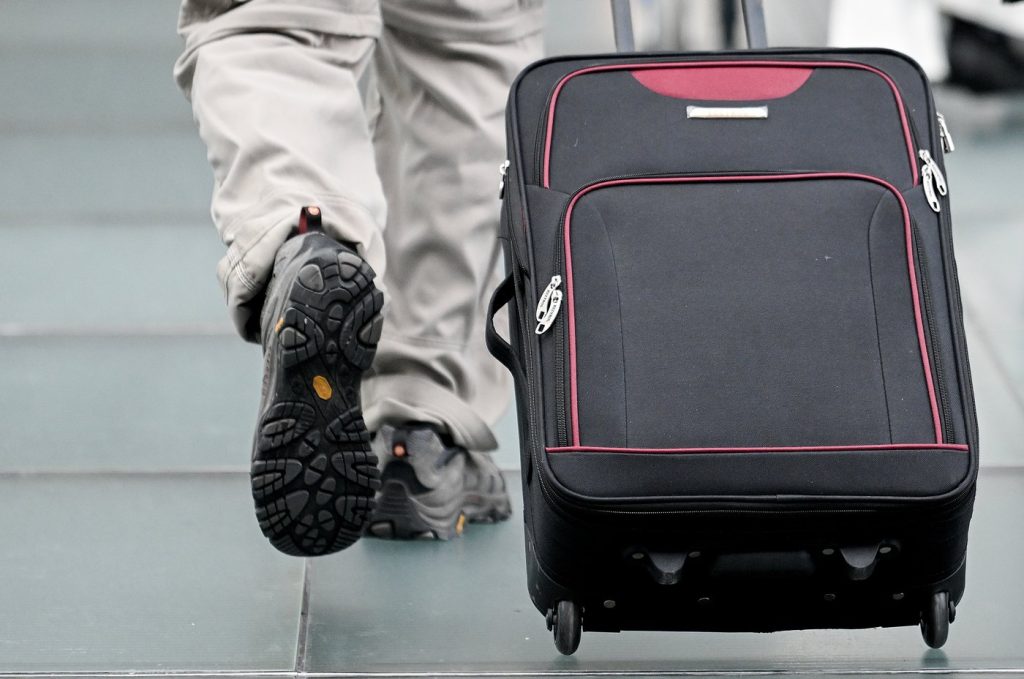MONTREAL — The ongoing repercussions of the political climate in the U.S. are compelling many Canadians to reconsider their business travel plans. Initially spurred by tariff threats and derogatory remarks from President Donald Trump regarding Canada, the situation took a more alarming turn when reports emerged about foreigners detained at the U.S. border. This change prompted tech CEO Oscar Acosta to cancel his trips to three important business conventions across the border in response to fears for his safety.
Acosta, who leads the Ottawa-based startup Body M3canix specializing in fitness-tracking devices for extreme environments, felt a particular concern after reading about Jasmine Mooney, a 35-year-old Canadian actress who was detained for 12 days after reapplying for a work visa in San Diego, and subsequently banned from the U.S. for five years. Acosta stated that the news "struck fear in my heart," particularly as an entrepreneur from a visible minority background.
This anxiety is not isolated. Many Canadians are pulling out of business trips, withdrawing from conferences, and avoiding future plans in the U.S. as a direct effect of the heightened tensions tied to U.S. government policies. According to Flight Centre Travel Group Canada, air travel between Canada and the U.S. for business purposes dropped nearly 40 percent year-over-year in February, signaling a significant decline in corporate travel, particularly influenced by the negative feelings toward the U.S. government.
Chris Lynes, managing director at Flight Centre, noted an immediate surge in cancellations for U.S.-based conferences, culminating in what he described as "fever pitch" regarding the scrapped plans. Various sectors, including banking, insurance, and manufacturing, reported companies opting out of trips as a proactive measure against potential risks—despite the likelihood of incurring penalties or forfeiting deposits. For instance, one banking client canceled six different programs scheduled across U.S. cities including New York, Dallas, Washington, D.C., and Las Vegas.
Lynes mentioned that his travel agency is accommodating employees who express discomfort and unease about crossing the border for events, exemplifying a broader sentiment among potential travelers. Factors causing travelers to hesitate include dual citizenship, visa status, or belonging to a demographic perceived as vulnerable during these turbulent times.
The impact of these cancellations reaches well into the future, with projections indicating that the aversion to traveling to the U.S. could persist through 2027. Companies are already considering alternative locations for corporate functions, looking to host events in Canada, Mexico, or even more distant venues instead of within the U.S.
As businesses grapple with the implications of the political climate, internal conflicts arise regarding organizational retreats. While some companies are pressing forward with plans, employees are expressing hesitations or refusing to attend. For example, a conference by Royal LePage planned for Nashville, Tennessee, is confirmed to take place regardless of employee anxiety due to financial commitments made prior to the current socio-political climate.
Recent statistics reveal a broader decline in travel, with Canadian return visits by car to the U.S. dropping by 32 percent year-over-year, alongside a 13.5 percent decrease in air travel back to Canada. This shift in travel behavior highlights the ongoing impact of the U.S. political environment on business engagements and opportunities, ultimately forcing individuals like Acosta to forgo chances for networking and funding opportunities due to safety concerns.
In conclusion, as individuals and companies navigate this tumultuous period, the decision to abstain from U.S. travel reflects deeper fears and real implications for business interactions across the border.










